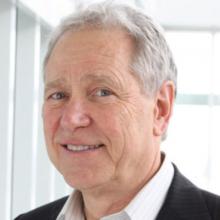
In a blogpost for the Association of American Publishers, my friend Marty Creel, the Chief Academic Officer/Vice President of Curriculum and Instruction at Discovery Education, laid out—in compelling fashion—how high-quality digital resources can support efforts to engage all students in instruction no matter their socioeconomic status or other factors. Since that blogpost was published, I’ve heard from many educator friends that they agree with Marty’s thesis, but they wish there were more concrete examples of ways digital content can be used to improve educational equity.
At FETC 2020 which takes place January 14-17 in Miami, Florida, participants will have many opportunities to see how digital content and educational technologies can be harnessed to improve equity in our schools. At the keynote panel I’m honored to be participating in, my fellow presenters and I will share the latest, most exciting strategies, software, apps, hardware, and, okay gadgets, too—we’ve seen recently that can be used to engage all learners. But for a moment, I’d like to focus on how educators can use Project Based Learning (PBL) and the Festival Approach to improve equity.
According to pblworks.org, Project Based Learning, “is a teaching method in which students learn by actively engaging in real-world and personally meaningful projects.” In addition, Project-Based Learning is an excellent way to promote equitable access to deeper learning, and the collaboration, communication, and critical thinking skills all students need for future success.
Festival time
My favorite strategy for improving equity through Project-Based Learning is the student festival. While this strategy can be used at the school, district or even state level, let me explain how this would work in the classroom setting.
In the classroom festival model, students design and run the entire festival. First, the class breaks into teams that are tasked with creating various components of the festival, beginning with the mission–what student outcomes will be targeted. After that, groups of students work on the theme, curriculum targets, and other details. Then, students create the judging process (including a simple rubric), the festival rules, etc. In one model, a student team even creates digital folders of curriculum-aligned content that must be used in the project alongside original student work.
With the competition created, students focus their energy on creating their projects. By participating in group projects such as this, all students have the opportunity to build deeper understanding, develop their problem-solving skills, expand their subject knowledge, and grow the “soft skills” so sought after by University admissions officers and potential employers. And, by the way, creating the project is also fun and engaging!
Once the projects are completed, students view all the projects. This, in a way, is the secret sauce in the festival approach to PBL. By building projects and judging projects, the curriculum aligned assets used throughout the process get seen by students again and again and again, and we all know the benefits of repetition.
Personally, I’ve seen the impact of PBL in the festival setting for years both through my work at Discovery Education and, for thirty years, through my participation in the California Student Media Festival. It’s truly amazing to see students engaged in their projects and then competing in the festival and being celebrated by peers, teachers, and the community. I encourage you to consider this approach to improving equity today your students are depending on you to do so!
For step-by-step instructions and a real nuts-and-bolts look at the successful components of a great student festival, visit my Building a Media Festival: District, Building, Classroom. Hows & Wows session at FETC 2020.
Of course, if you have questions about how to combine digital content, project-based learning, and the student festival approach to education, feel free to contact me via email at [email protected].
Hall Davidson is Discovery Education’s senior director of global learning initiatives and has worked with ministries, school districts, and industries worldwide. A former bilingual math teacher, Hall is also a member of the International Society for Technology in Education’s Board of Directors. He was a featured speaker at DA’s FETC.
Interested in edtech? Keep up with DA’s Future of Education Technology Conference®.

